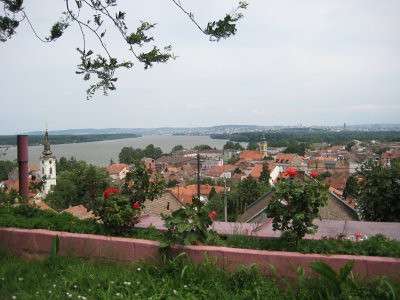I knew 3 months in the Balkans would not provide me with instant clarity and understanding of a region that is frequently baffling to even those who have lived there their whole lives. However, it did help me understand the context and origins of many of the problems that the people of the Former Yugoslavia deal with every day. It helped me see why some of issues that many of us don’t “get” in the U.S. are so important.

One of the best reasons to travel is to gain perspective on where you come from. Three themes kept emerging in my thoughts during my trip:
1) Many of the goals Women in Black are struggling for seem, to me, “obviously good”: ethnic and religious tolerance, nonviolence, gender equality, and separation of church and state. But many people in Serbia consider WiB as radicals with harmful views. What voices in my life have I dismissed as too extreme?
2) Women in Black and other activists like them have only achieved progress by putting themselves in uncomfortable situations: they had to ask for more than others thought reasonable. It made me think about social changes in the United States that I believe are within reach, but I have been not active in working for. I resolve to do more than just wait for them to happen.
3) Finally, I appreciated the rights and freedoms I have been able to enjoy in my life more and more. Looking back toward my home, both its flaws and virtues became more salient: I felt grateful that I did not have to worry about people knowing my last name. As someone who in other times and places could have been persecuted for a number of my inherent characteristics, I realized what a privilege it is to be able to forget about those things. However, that makes the presence of things like racism and homophobia in present-day America all the more ludicrous and abhorrent to me. The more I thought about how much progress we have made, the more incensed I was that we still allowed these types of injustices to persist.
None of these ideas or thoughts are novel or unique; I had read about and discussed many of them before. But having these realizations and emotions stem from actual events and relationships made them far more meaningful to me.
Posted By Janet Rabin
Posted Sep 1st, 2008

